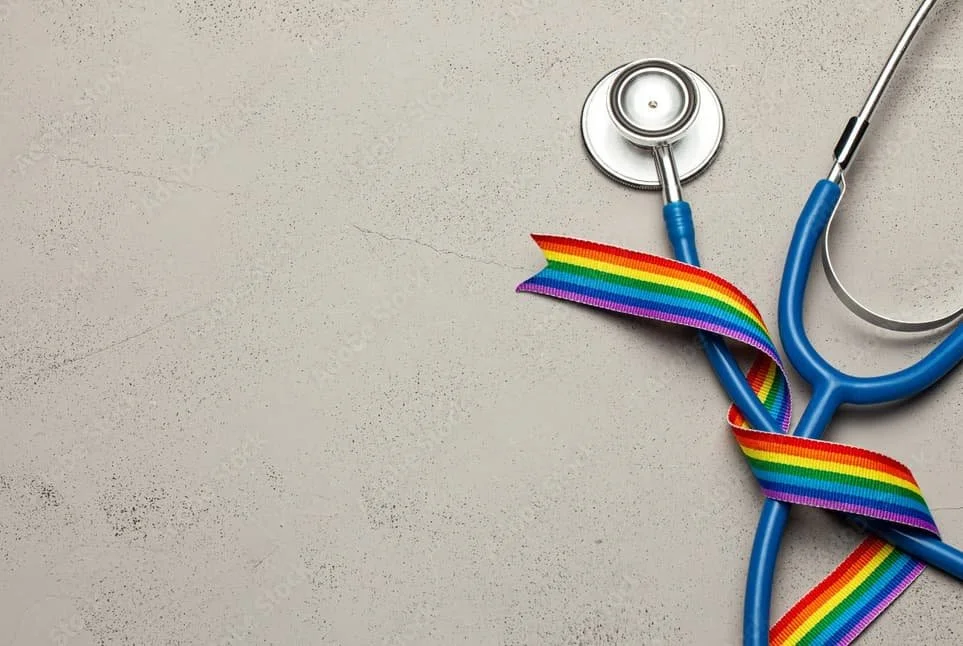
Preparing future doctors, psychologists, therapists and other health and mental health care professionals to deliver informed, sensitive and effective care to LGBTQ+ patients/clients
Drawing from extensive clinical, research, teaching and lived experience, I create interactive and reflective learning experiences that transform how future doctors and healthcare professionals understand and support LGBTQ+ individuals.
Lecture Topics
Below are some examples of lecture topics but all lectures can be tailored to specific audiences, and bespoke sessions can be created upon request.
-
This introductory session aims to increase students’ knowledge and understanding of the lived experience of people with a range of different gender and sexual identities; the appropriate terms and language to work sensitively and effectively with this group; and how to foster a welcoming, supportive and safe environment for LGBTQ+ patients/clients.
-
Members of the LGBTQ+ community experience mental and physical health inequities throughout the lifespan, and have poorer experiences when accessing health services than their heterosexual and cisgender peers.
This session:
- Outlines proximal and distal minority stress factors for LGBTQ+ people
- Examines their impact on health and mental health
- Builds skills in how to respond, mitigate negative effects, and promote wellbeing and resilience
-
Covering areas such as:
- Sexual history taking without assumptions
- Risk and prevention for STIs, including PrEP and HPV vaccinations
- Family planning, including fertility preservation
-
Covering areas such as:
- Understanding social transition
- Discussing gender-affirming care, including hormone therapy and surgical options
- Managing side effects and risks of medical transition
- Trans healthcare in the current political landscape
- GP prescribing and monitoring
- Trans and non-binary specific sexual health
- Family planning, including fertility preservation
-
This session explores the intersections of gender, sexuality, and other aspects of identity in healthcare delivery:
- Age, Ability, Class, Culture, Education, Ethnicity, Race, Religion, Spirituality
- Examines how the intersections of these different identities can create unique forms of discrimination for some LGBTQ+ people
- Provides skill building activities to help healthcare professionals respond and mitigate negative effects at an individual and systemic level
-
Covering areas such as:
- Cultural competence and humility: acknowledging biases and learning from LGBTQ+ clients, service users and patients
- Trauma-informed care: recognizing how past discrimination affects patient trust in healthcare
- Inclusive communication
- Creating safe spaces
-
Covering areas such as:
- Understanding why it’s important to be able to talk openly about sex and sexuality with patients/clients
- Developing self-awareness of factors that impact on our ability to talk openly about sex and sexuality
- Learn information and practical skills to increase confidence to talk about sex and sexuality
- Enhance understanding of sex and the law, and safeguarding
-
Learning about pornography and its impact on health is important because it helps health professionals offer informed, non-judgement, and effective care in an area that affects people’s wellbeing, relationships and sexual health.
This session aims to:
- Explore the potential impacts of pornography on health and relationships
- Build confidence discussing pornography with patients/clients
- Develop at non-judgemental, evidence-informed approach
- Understand how to assess and respond to distress relating to pornography
- Understand and apply a sex positive approach, which respects and celebrates human sexual diversity and expression, without shame or stigma
-
This sex and relationships session covers the emotional, relational, psychological, and cultural dimensions of sexual health.
The session aims to:
- Explore relationship health and intimacy, including relationship diversity
- Consider cultural and structural factors that impact sex and relationship health
- Consider sex across the lifespan
- Understand sexual difficulties and when to act
- Consider sexual pleasure as a health-promoting factor and an important part of patient-centred care
- Explore personal beliefs, values and assumptions about sex and relationships
- Build communication skills in asking questions about, and discussing sex and relationships effectively and sensitively
- Explore assessment of risk and safeguarding
“Lorna's contribution to the LGBTQ+ Health teaching at UCL Medical School has been integral to its success over the past five years. Her expertise, inclusivity and creativity have been commended by medical students and staff alike, who have also benefitted from her collegiality and support”.
— Dr Jayne Kavanagh. Associate Clinical Professor in Medical Education at University College London (UCL) Medical School.
Get in touch to enquire about booking academic speaking/lecturing
-
Lectures can be delivered as:
• Single sessions (2-3 hours)
• Workshop series
• Conference presentations
Available in-person, online, or hybrid format to suit your needs.
-
My sessions combine:
• Evidence-based content
• Interactive learning
• Practical applications
• Case examples
• Integration of lived experience perspectives
-
• Clinical Psychology Doctorate
• PhD in Psychosexual Difficulties
• 17+ years specialist experience
• Extensive teaching experience across leading UK institutions


